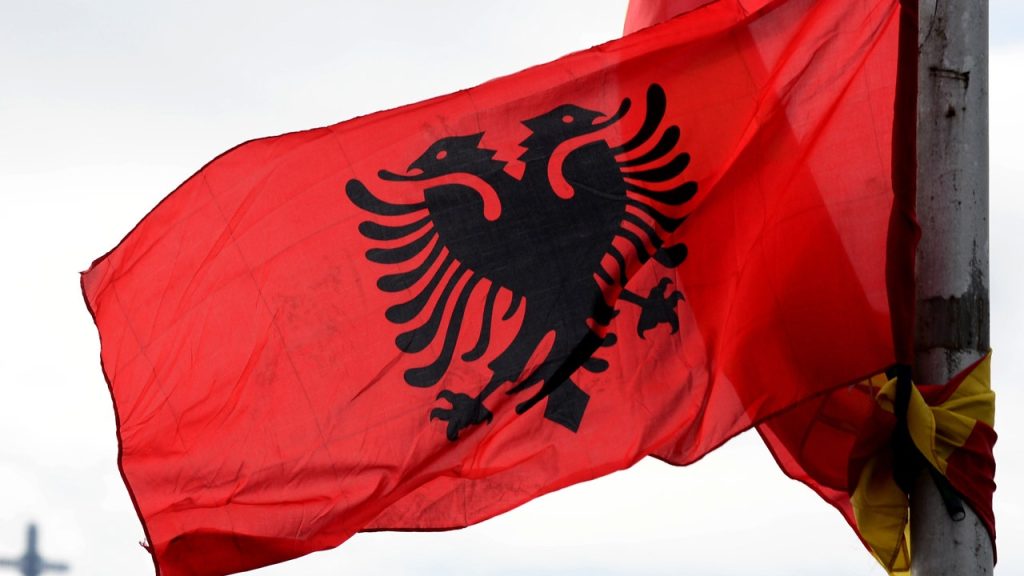The Albanian government has embarked on a controversial decision to suspend the popular video-sharing platform TikTok for 12 months, citing the app’s role in inciting violence and promoting bullying, particularly among children. Education Minister Ogerta Manastirliu confirmed that this action follows extensive consultations with parents, revealing a significant public sentiment favoring the restriction of the platform. The government’s decision arose from a tragic incident involving a fatal stabbing fueled by TikTok-related disputes, prompting heightened scrutiny over the social media platform’s impact on Albanian youth.
| Article Subheadings |
|---|
| 1) Context of the Decision: Violence and Bullying |
| 2) Government’s Consultation with Parents and Experts |
| 3) Response from TikTok and Ongoing Discussions |
| 4) Public Reaction and Opposition to the Ban |
| 5) Global Context and Similar Concerns |
Context of the Decision: Violence and Bullying
The Albanian Cabinet’s recent decision to suspend TikTok stems from a broader concern regarding violence and bullying exacerbated by social media platforms. In November of the previous year, a tragic incident unfolded when a teenage quarrel escalated into fatal violence, with reports indicating that the confrontation was sparked by interactions on TikTok. Albanian officials, including Minister Manastirliu, have emphasized the platform’s role in shaping harmful behaviors among youth, raising alarms about its accessibility to children. The government’s decision reflects a growing unease regarding how digital platforms can foster aggression and peer pressure among teenagers.
Government’s Consultation with Parents and Experts
In efforts to gauge public sentiment on TikTok’s influence, Albanian authorities held approximately 1,300 meetings with around 65,000 parents, many of whom expressed concerns about their children’s use of the app. Minister Manastirliu disclosed that parents overwhelmingly supported measures to limit TikTok’s access, highlighting a collective demand for more safety measures in children’s online environments. In this context, the government plans to collaborate with TikTok to implement additional protective measures, such as parental controls, age verification, and integrating the Albanian language into the app to better serve the local population.
Response from TikTok and Ongoing Discussions
Following the announcement of the ban, TikTok has remained largely silent, though the company indicated earlier concerns about its portrayal in relation to the stabbing incident. TikTok requested clarification from the Albanian government regarding the allegations linking the app to violent acts. Prime Minister Edi Rama revealed that the government was in a “positive dialogue” with TikTok, suggesting that discussions are ongoing to address the government’s concerns. During these talks, TikTok is expected to propose several initiatives aimed at enhancing security and fostering a safer online environment for users, particularly children.
Public Reaction and Opposition to the Ban
The decision to suspend TikTok has sparked significant debate and pushback within the community. The leading opposition party has condemned the government’s action, characterizing the ban as an expression of intolerance and an infringement on freedom of speech and expression. Protests are planned for March 15, aimed at opposing what critics describe as an excessive government overreach into digital communications. Many see the ban as a reaction to fear rather than a solution to deeper societal issues, arguing that education and awareness campaigns could be more effective in combatting the harms associated with social media.
Global Context and Similar Concerns
The Albanian government’s move joins a growing list of international concerns surrounding TikTok and other social media platforms. Countries around the world have grappled with similar issues, particularly regarding the app’s use by minors and the potential for exposure to harmful content. Recent investigations by data protection authorities in various nations highlight the need for better regulation of children’s access to social media. The UK’s data protection agency, for instance, is currently probing how TikTok uses the personal information of teenagers to influence their feed recommendations. The broader implications of these messages resonate with parents globally, igniting calls for increased accountability from social media companies.
| No. | Key Points |
|---|---|
| 1 | The Albanian Cabinet has suspended TikTok for 12 months to address concerns about violence and bullying among youth. |
| 2 | Minister Ogerta Manastirliu reported significant parental support for limiting TikTok’s access. |
| 3 | TikTok is engaged in discussions with the Albanian government to explore safety measures for children. |
| 4 | The opposition party is organizing protests against the TikTok ban, condemning it as an act of censorship. |
| 5 | Global scrutiny of TikTok is increasing, with several countries examining its data handling practices regarding minors. |
Summary
The suspension of TikTok in Albania highlights a complex intersection of parental concern, governmental responsibility, and the accountability of social media platforms. As authorities advocate for increased safety measures and engage in dialogue with TikTok, the conversation extends beyond Albania, tapping into a global dialogue about the impact of social media on youth behavior and well-being. Moving forward, it will be critical to balance public safety concerns with the rights to free expression and access to digital platforms.
Frequently Asked Questions
Question: Why did Albania decide to suspend TikTok?
The Albanian government decided to suspend TikTok due to its alleged role in inciting violence and bullying among children, particularly following a tragic incident where a teenager was fatally stabbed after a dispute linked to the platform.
Question: What measures is the Albanian government considering for TikTok?
The government is in discussions with TikTok to implement additional safety measures such as age verification, parental controls, and support for the Albanian language within the app.
Question: How has the public reacted to the TikTok ban in Albania?
The public reaction has been mixed, with a segment of the opposition planning protests against the ban, viewing it as an infringement on free speech and an overreach by the government.


